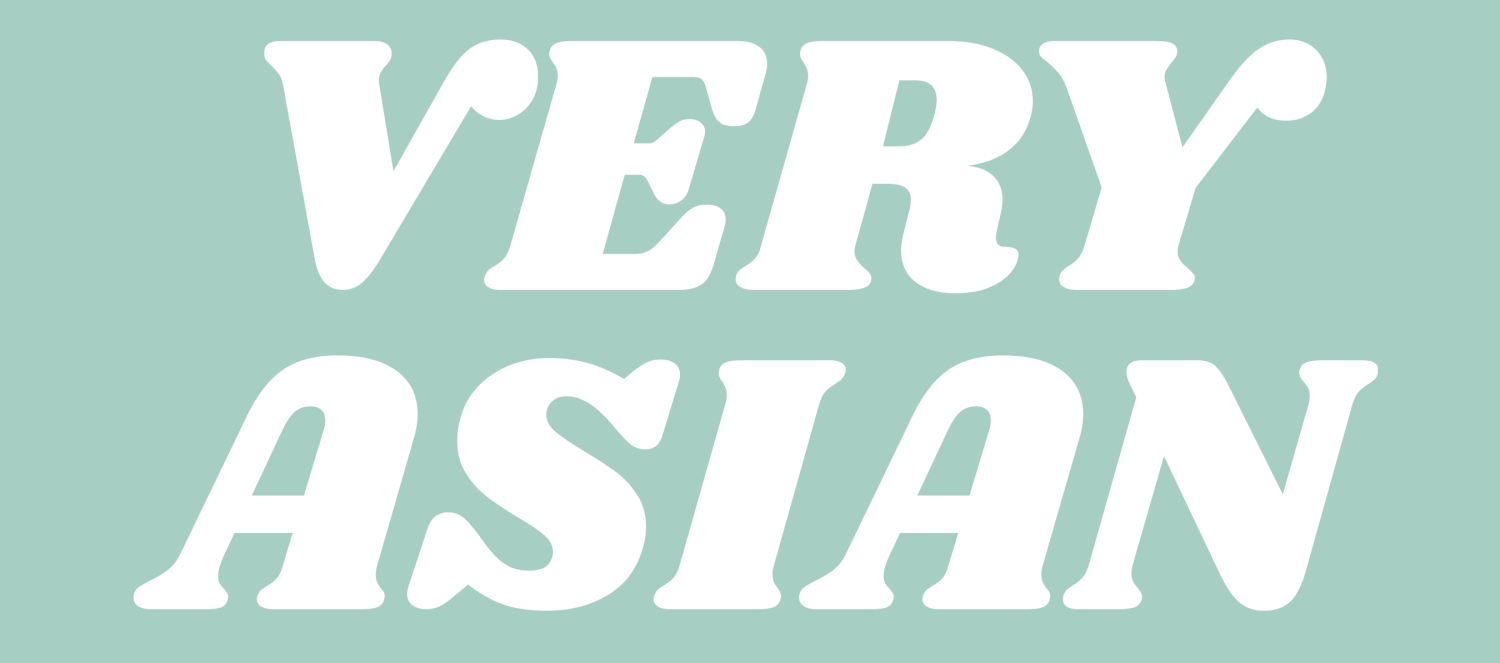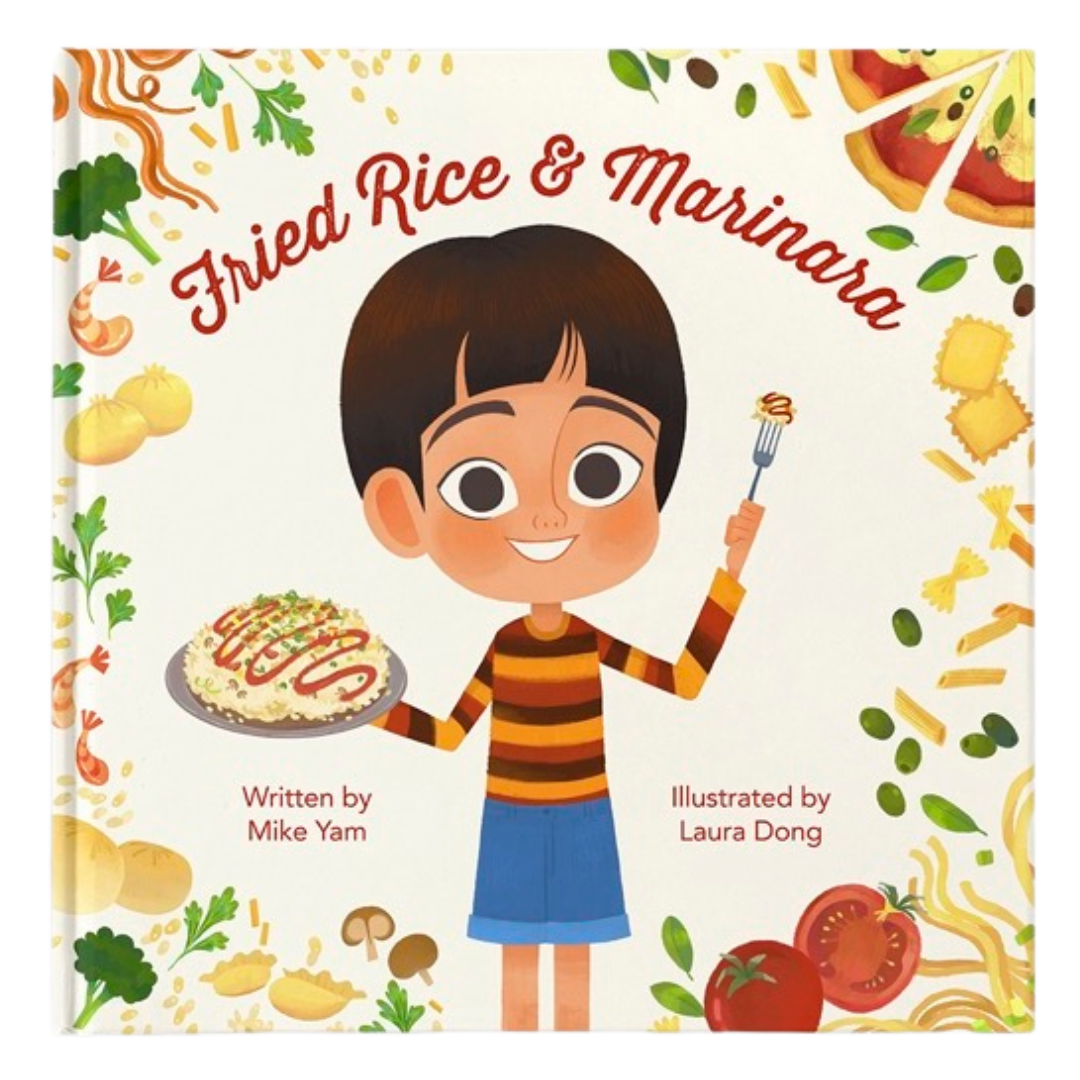In conversation with Mike Yam, NFL Network anchor and children’s book author
Photo: Olivia McLucas / NFL
According to data from Zippia, just 3.5% of sports broadcasters are of Asian descent — Mike Yam is one of them. Mike is of Chinese and Italian heritage and he works as a news anchor for NFL Network where he hosts shows such as NFL Total Access.
In my first few interactions with Mike, there’s an immediate trait I notice about him — he’s intent on paying things forward. He often spends his time speaking to students who aspire to be broadcasters, he’s frequently used his platform to speak out about anti-Asian attacks, and now he’s authored a book about this multicultural background, published on a platform for children of various reading levels and learning abilities. Growing up, Mike says he struggled with reading.
It was my great pleasure to connect with and interview Mike. I know you’ll enjoy reading his grandparent’s immigration story, his journey to becoming a sports anchor and children’s book author, and his thoughts on Asian representation.
These are edited excerpts from our conversation.
Tell me about your family’s immigration story to the U.S. What hardships did they face?
It’s a wild story! My dad is from Hong Kong and when he was young my grandfather took a job as a sailor knowing the ship was heading to the US. He didn’t have plans to get back on the boat to return to China. Instead, he stayed in the US and worked in Chinese restaurants washing dishes and cooking to survive. It wasn’t the easiest lifestyle — on occasion he would have to run out the back and hide in dumpsters from immigration officers. It’s hard knowing that’s what he had to do. My grandfather would eventually turn himself in to immigration officers, and with the help of an attorney, he was able to get a visa and green card to stay and work. My cousin came across letters my grandmother wrote to Robert F. Kennedy, who was the attorney general at the time, to plea that he let my grandfather stay in the U.S. I remember reading those letters for the first time. It’s crazy to me to think about that level of desperation. My grandfather would send money back for years to my grandmother to help support my dad and aunts and uncle. The sad reality is my grandfather was away from his family for 10 years.
A letter Mike Yam’s grandmother wrote to Robert F. Kennedy.
If you could speak to your Asian grandparents today as an Asian American adult, knowing their story and having your own unique experiences, what would you say to them?
As I’ve gotten older I have a real appreciation of the sacrifices my grandparents and parents have made. My upbringing was drastically different from theirs. I was fortunate enough to have 2 parents present in my life, the support of teachers and mentors and resources to find a career path I love. I was able to spend time as a kid playing sports, hanging out with friends and going to school. I think back to my dad’s path and at 16 he came to the US where his life consisted of going to school and working at the family restaurant.
Mike (middle) with his two cousins Melanie and Melissa, and his grandmother.
Tell me about your childhood.
I was fortunate to have a good childhood. I loved playing sports and my mom really encouraged me to be active. I spent most of my childhood wanting to be a pediatrician. When I got to Fordham I was pre-med, but quickly made a right turn and joined WFUV (the radio station on Fordham’s campus) and slowly started to get on-air reps.
Your last name Yam is Chinese — can you tell me about your parent’s decision to make sure part of your name represents your Asian heritage?
I know the family name is of great importance to my dad and my other relatives. I do think our name, much like any other name that has cultural significance is important for families. For many families, it’s a connector of the past to the present.
Being biracial with very different ethnic and cultural backgrounds, how did you find a sense of belonging?
I think it’s a great question and one I’ve thought a lot about over the last few years. I think it’s becoming more common to see biracial children and blended families. When I was growing up I didn’t know many kids who had backgrounds like mine. Most times, I thought it was cool that I was Chinese and Italian, but over the years there were times when I felt like I had to pick a side or wasn’t “totally” Chinese or Italian. People have said I’m “not really Chinese” or have seen the surprise and disbelief when I say I’m Italian. I think writing Fried Rice and Marinara was a way to normalize the reality that there are many families who have parents from different backgrounds. I also want those kids to know they can embrace the uniqueness that comes from having parents who come from very different ethnicities.
Was there ever a time when you were made to feel less Asian?
It can be frustrating to hear, but I’ve been told more than once that I’m not really Chinese. When it comes to professional experiences there was a time where I have heard “they already have an Asian person on air” or “I’m not the right minority.” I know those experiences are not unique to me and that others have had to deal with similar or the same experiences. I have always felt like if I can outwork someone or just be so good they won’t have a choice, but to give me opportunities. I have been lucky in the sense that for every “negative” interaction or experience there have been so many more positive ones. I’ve been so grateful to develop friendships and strong relationships with people in the industry. I know for a fact there are so many great people with great intentions that want to help that it dramatically outweighs those who are negative. The trick is to surround yourself with those positive forces.
What’s it like to be Asian American working as a sportscaster — you’re one of very few.
A few years ago I received a message from someone who said they had been following my career since I was at ESPN. He told me he was Chinese and my work allowed him to think he could be a sportscaster as well. I was just so blown away by that. Not in a million years would I ever think I would get a message like that. I’m grateful to my bosses who have given me the opportunity to be on air. I do think back to the moments where I thought about making this a career. I remember seeing Michael Kim on ESPN for the first time and subconsciously realizing being a sportscaster was possible. People say all the time “you need to see someone doing something to know it’s possible.” While I agree with that in principle, I don’t think anyone actually utters those words in the moment. I really do think these things live in our subconscious. The more frequently we see it the more normal it becomes. I’m very aware of my background and the lack of Asian Americans on a national level doing sports. AAJA’s Sports Task Force has done a good job to help to cultivate more talent. I can’t wait for things to get to the point where Asian Americans in sports isn’t an outlier.
Photo: Olivia McLucas / NFL
What or who made you believe being an Asian American sportscaster was possible?
I call Michael Kim the godfather. It was so awesome to see him on TV and then to have the opportunity to do some shows with him at ESPN was always so cool for me. I started my career journey just wanting to be around sports and have a chance to broadcast. Early in my career I didn’t spend much time thinking about how I looked or my last name. I really just wanted to do the best job I could and not make mistakes. I said yes to every opportunity and always felt indebted to my bosses for the chance to do this. This might sound cheesy, but I wanted the people who gave me a chance to be proud of the work I was doing for them. I know how competitive the industry is and just never wanted to disappoint them.
What’s your take on the state of Asian representation in the NFL?
I think the state of Asian Americans in sports is too low. I think from the athletes, coaches, scouts, and front office people, there should be more inclusion. When I’m watching a game and can see someone who looks Asian on the bench as a coach or trainer, I get legit excited. I start to think “Who is that? What do they do? What’s their story?”
What’s your hope for your first book, Fried Rice & Marinara? The book was the #1 streamed title on Vooks within its first two weeks of launching.
I think for any generation not seeing much diversity in characters playing a leading role alters your thinking about a career path. Part of the reason why I wanted to write Fried Rice and Marinara was to have young readers see a multiethnic character in a lead role. I also wanted to spark the thought that families with diverse backgrounds are normal. At times in my childhood, I thought I had to “pick a side,” which is weird to think about now. I really want young kids to be able to embrace their heritage and be proud of their background. I know for my family, food was a backdrop to everything we did. I wanted to use cuisine as a vehicle to bring the story to life. In various forms of media, I’m not used to seeing Asians playing a leading role. It was important to me that young children can see themselves as the focal point of a story.
Click here to stream Fried Rice & Marinara.
Do you have any other projects you’re working on?
I have more than a few drafts ready to go! I’m hoping Fried Rice and Marinara does well enough to warrant consideration from a publisher to go to hardcopy. I worked with Vooks on this story because I believe in the company's mission. Vooks is the only platform that animates childrens stories and includes full narration and read-along text. I struggled early on as a child to learn to read and have memories of sitting next to my mom on the couch as she used her index finger going line by line to help teach me. I wish I had Vooks when I was a kid. It would have helped me tremendously.
Mike has generously shared a subscription code with Very Asian readers. Click here and use code YAM to enjoy a one-year subscription to Vooks, a library of nearly 300 books for kids between the ages of 2-8. Each book is beautifully illustrated and narrated which can be streamed on your phone, tablet, laptop, and TV.






